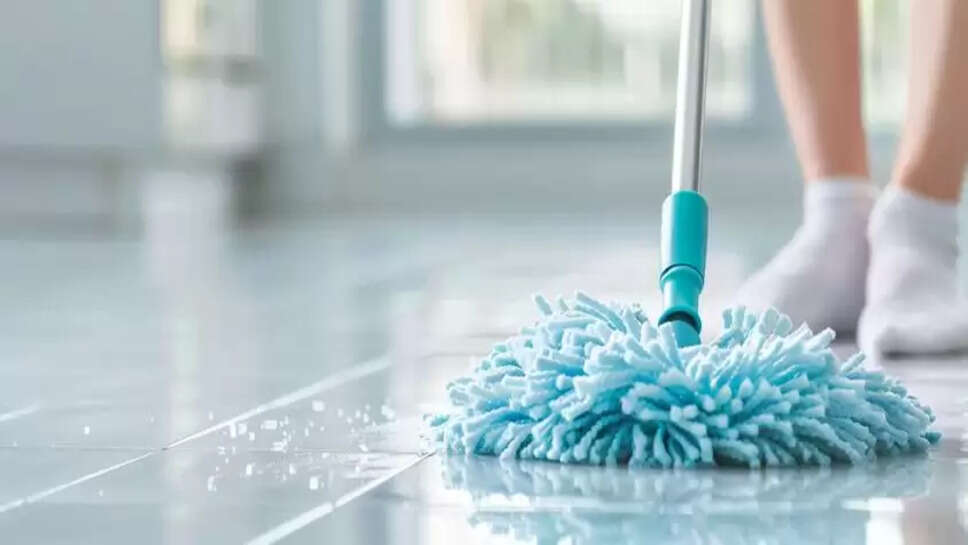The Benefits of Floor Cleaning: More Than Just a Shine

Keeping your floors clean may seem like a simple housekeeping task, but the benefits of regular and thorough floor cleaning go far beyond appearance. Clean floors contribute to healthier living spaces, longer-lasting surfaces, improved safety, and even enhanced mental well-being. Whether it’s in homes, offices, hospitals, or schools, proper floor maintenance is essential to ensure a clean and healthy environment for everyone.
This article explores the multi-faceted benefits of floor cleaning across different types of settings and flooring materials.
1. Promotes Health and Hygiene
One of the most immediate and important benefits of floor cleaning is its impact on health and sanitation. Floors often harbor dust, allergens, bacteria, viruses, fungi, and parasites that can pose a risk to humans and pets.
-
Reduces Allergens: Dust mites, pet dander, pollen, and mold spores can settle on the floor, especially in carpets. Regular cleaning eliminates these irritants and improves indoor air quality, reducing asthma and allergy symptoms.
-
Controls Germ Spread: In places like kitchens, bathrooms, and medical facilities, unclean floors can spread harmful bacteria and viruses. Disinfecting floors regularly lowers the risk of infections, including stomach bugs, colds, or more serious diseases.
-
Prevents Mold Growth: Damp or dirty floors—especially in humid climates—can harbor mold. Mold exposure is linked to respiratory problems and skin irritation. Proper floor cleaning and drying prevent this risk.
2. Improves Aesthetic Appeal
Clean floors instantly enhance the visual appeal of any space.
-
Shiny Surfaces Look Newer: Polished or well-maintained floors (tiles, marble, wood) reflect light better and give a clean, well-kept impression.
-
Creates a Welcoming Environment: Whether it’s a home, hotel, office, or retail store, clean floors make spaces feel fresh, inviting, and cared for. This can positively influence moods and even customer impressions.
-
Boosts Property Value: Regular cleaning preserves flooring materials, maintaining property value in the long run. Floors are one of the first things people notice when entering a space.
3. Enhances Safety and Reduces Risk of Accidents
Dirty or poorly maintained floors are a leading cause of slips, trips, and falls—especially in high-traffic areas.
-
Removes Spills and Hazards: Wet spots, oil, or food residue on floors can cause people to slip. Prompt and regular cleaning eliminates these hazards.
-
Keeps Walkways Clear: Dust, dirt, and debris can accumulate and become a slipping or tripping risk. This is particularly dangerous in homes with elderly residents, children, or people with disabilities.
-
Prevents Floor Deterioration: Debris or sand particles can scratch floors over time, creating uneven surfaces that are tripping hazards.
Maintaining a clean and dry floor is especially vital in workplaces and public spaces, where safety regulations must be upheld.
4. Extends Floor Lifespan and Saves Money
Floors, especially in commercial or high-use areas, are costly to install and replace. Regular maintenance prolongs their life and protects your investment.
-
Prevents Surface Damage: Dust, dirt, and moisture can scratch or warp floor surfaces over time. Regular sweeping, mopping, and polishing protect materials like hardwood, marble, and vinyl.
-
Reduces Repair Costs: Cleaning helps spot small issues like cracks, chips, or warping early. Addressing these problems sooner prevents expensive repairs or full replacements.
-
Preserves Floor Finish: For waxed or sealed floors, cleaning helps preserve the protective finish, delaying the need for reapplication or restoration.
5. Supports Mental Well-Being and Productivity
There’s a strong link between cleanliness and mental health. Clean floors contribute to a positive, productive mindset.
-
Reduces Stress: A tidy environment creates a sense of order and control. Dirty or cluttered floors can trigger anxiety or feelings of overwhelm.
-
Encourages Productivity: Clean work environments help employees concentrate better. In educational settings, cleanliness contributes to better focus among students.
-
Promotes Good Habits: A clean floor sets a standard for other cleaning habits. When floors are clean, people are more likely to keep other areas clean too.
6. Environmentally Friendly (When Done Right)
Eco-conscious floor cleaning can support sustainable living and green practices.
-
Reduces Indoor Pollution: Clean floors mean less airborne dust and chemicals that can circulate through air vents.
-
Supports Non-Toxic Cleaning: Using natural or eco-friendly cleaners (like vinegar or plant-based solutions) avoids harsh chemicals and supports a healthier indoor environment.
-
Conserves Resources: Regular maintenance with simple tools (like microfiber mops and reusable cloths) is often more resource-efficient than occasional deep cleaning or replacements.
7. Builds Positive Impressions in Commercial Spaces
In business settings, floors speak volumes about a brand’s values.
-
Signals Professionalism: Clean floors in offices, showrooms, or clinics show that the business cares about detail and hygiene.
-
Improves Customer Experience: Customers are more likely to return to shops, salons, or restaurants that look clean and organized.
-
Boosts Employee Morale: A clean workplace is not just pleasant—it shows respect for workers, boosting morale and productivity.
8. Specific Benefits Based on Flooring Type
Different floor materials benefit uniquely from routine cleaning:
-
Hardwood Floors: Regular cleaning prevents dust from scratching the wood. Mopping with appropriate cleaners maintains shine and prevents water damage.
-
Tiles and Grout: Frequent cleaning avoids staining and bacteria buildup in grout lines, keeping the floor fresh and sanitary.
-
Carpets: Vacuuming and steam cleaning eliminate allergens, dust mites, and odors, making carpets last longer and stay soft.
-
Vinyl or Laminate: Prevents discoloration and wear patterns from foot traffic.
9. Encourages Routine and Discipline
Committing to a regular floor cleaning schedule teaches discipline and responsibility, whether in homes or organizations. It builds routines that foster accountability and pride in one’s environment.
Clean floors do more than sparkle. They protect our health, reduce safety risks, extend the life of our homes and buildings, and promote mental clarity. Whether maintained through daily sweeping, weekly mopping, or periodic deep cleaning, clean floors are a foundational aspect of good hygiene, aesthetics, and overall well-being.
The next time you clean your floors, remember: you’re not just tidying up—you’re investing in a healthier, safer, and more beautiful space for everyone around you.
.jpg)